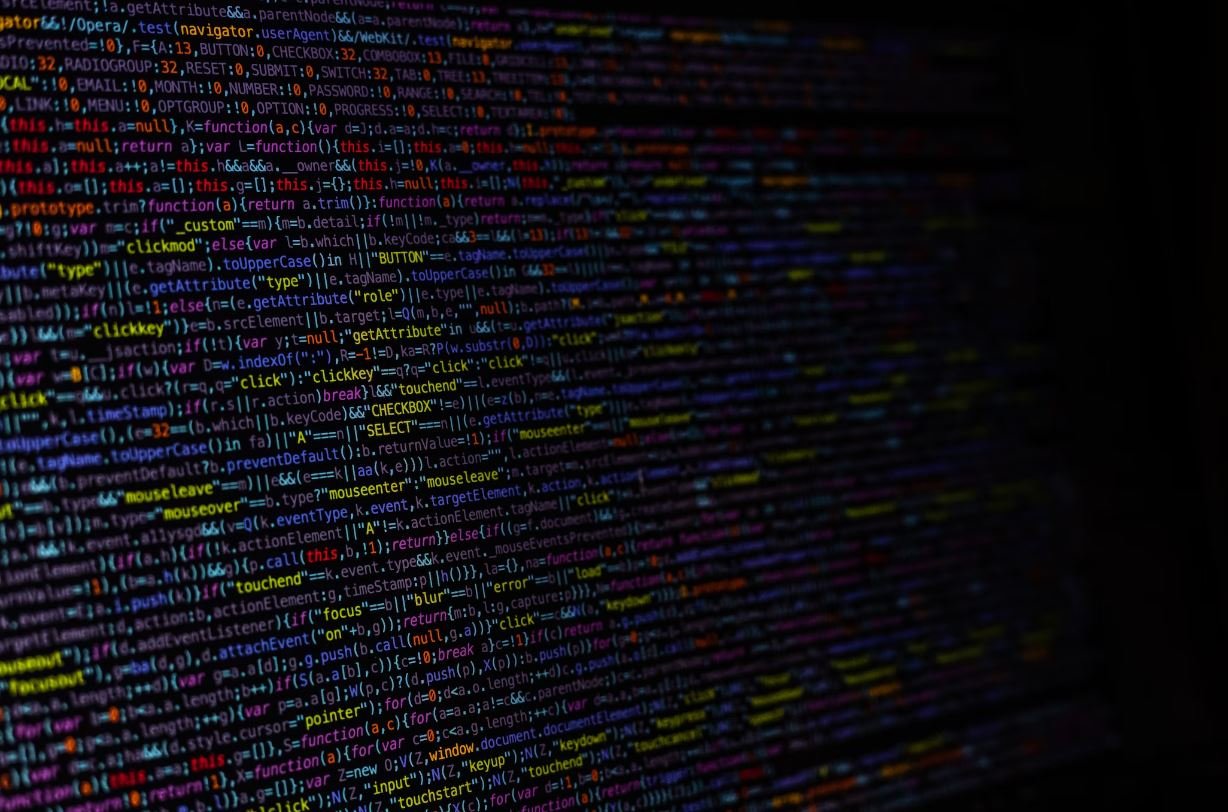Can Apps Be Patented?
With the growing popularity of mobile applications, many developers wonder if their apps can be patented. The answer is yes, but it’s important to understand the specific requirements and challenges associated with app patents. This article will delve into the topic and provide valuable insights for app developers seeking patent protection for their innovative creations.
Key Takeaways
- Apps can be patented, but they must meet specific criteria.
- Patenting an app requires demonstrating unique and non-obvious features.
- The patent application process for apps can be complex and time-consuming.
- Protecting app intellectual property is crucial for gaining a competitive edge.
Understanding App Patents
Prior to delving into the details of patenting apps, it’s crucial to understand what a patent is. A patent is a legal right granted by a government to an inventor, giving them exclusive rights to their invention for a set period of time. In the context of apps, a patent would protect the underlying technology or method behind the app’s functionality.
*App patents can cover a wide range of technologies, including unique algorithms, user interfaces, and data processing methods.
To be eligible for a patent, an app must meet certain requirements. Firstly, it must be considered a new and novel invention. This means that the concept must not have been previously disclosed or known to the public. Secondly, the app must possess non-obvious features, meaning that it cannot be a simple modification or combination of existing apps or technologies.
*App developers need to ensure their inventions are novel and non-obvious to increase the chances of obtaining a patent.
Patent Application Process for Apps
The patent application process for apps can be complex and time-consuming. It typically involves several steps, including conducting a thorough prior art search to ensure that the app’s invention is unique. Once the prior art search is completed, a patent application is prepared and filed with the relevant patent office, such as the United States Patent and Trademark Office (USPTO).
Once filed, the patent application undergoes a rigorous examination process, during which the patent examiner assesses the app’s invention against the criteria of novelty and non-obviousness. This examination process can be lengthy, taking several years in some cases, before a final decision is made.
*Applicants must be prepared for a potentially long waiting period during the patent application process.
Protecting App Intellectual Property
Protecting app intellectual property is crucial for app developers who want to gain a competitive edge in the market. While patents provide legal protection for inventions, developers can also use other intellectual property tools, such as trademarks and copyrights, to safeguard their app’s unique branding, features, and code.
Implementing robust intellectual property strategies not only helps app developers defend against possible infringement but also serves as a valuable asset for licensing, generating revenue, or attracting investment.
*Developers should take a comprehensive approach to protect their app’s intellectual property, using patents, trademarks, and copyrights.
Tables and Data
| Year | Number of App Patent Filings |
|---|---|
| 2016 | 10,678 |
| 2017 | 12,345 |
| 2018 | 14,209 |
Table 1: Number of App Patent Filings from 2016 to 2018
Based on the data above, it is evident that the number of app patent filings has consistently increased over the years. This indicates the growing recognition of the value of app patents and the importance of protecting app innovations.
Conclusion
In conclusion, the answer to the question “Can apps be patented?” is a resounding yes. However, app developers must meet specific requirements, demonstrate unique and non-obvious features, and navigate the complex patent application process. By protecting their app’s intellectual property, developers can gain a competitive advantage in the market and unlock various opportunities for growth and success.

Common Misconceptions
Paragraph 1: Apps cannot be patented.
One common misconception people have is that apps cannot be patented. However, this is not true. Apps can indeed be patented, just like any other invention. In fact, many app developers file for patents to protect their unique ideas and innovations.
- Apps can be patented under certain conditions.
- Patented apps have legal protection against copying.
- Patenting an app can provide a competitive advantage in the market.
Paragraph 2: Only the entire app can be patented.
Another misconception is that only the entire app can be patented. In reality, various aspects of an app, such as its functionality, user interface, or a specific feature, can be patented individually. This allows app developers to protect specific inventions or innovations within their app.
- Specific features or functionalities of an app can be patented individually.
- Patenting specific elements of an app allows for more focused protection.
- Patenting individual aspects of an app can prevent competitors from replicating those specific innovations.
Paragraph 3: All apps are automatically protected by copyright.
Many people assume that all apps are automatically protected by copyright. While it is true that apps are generally protected by copyright laws, this protection only covers the specific code and expression of the app. It does not protect the underlying idea, functionality, or invention. To protect these aspects, patenting is necessary.
- Copyright protects the specific code and expression of an app.
- Copyright does not protect the underlying idea or functionality of an app.
- Patenting is necessary to protect the invention and innovation behind an app.
Paragraph 4: Patents for apps are not enforceable.
Some people believe that patents for apps are not enforceable because of the rapidly changing and evolving nature of the mobile app market. However, this is a misconception. Patents for apps can be just as enforceable as patents for any other technology or invention. The key lies in the strength of the patent and the willingness of the patent holder to take legal action when necessary.
- Enforceability of app patents depends on the strength of the patent.
- Patent holders can take legal action to enforce their app patents.
- Enforcing app patents can deter potential infringers and protect the patent holder’s rights.
Paragraph 5: Applying for an app patent is a lengthy and complex process.
One common misconception is that applying for an app patent is a lengthy and complex process that is not worth pursuing. While it is true that patent applications can be complex and time-consuming, with the right guidance and assistance, the process can be streamlined. Moreover, the potential benefits of obtaining a patent, such as exclusive rights and market advantages, often outweigh the complexities of the application process.
- Applying for a patent can involve complexities, but it is not an impossible task.
- Seeking professional assistance can simplify the patent application process.
- The benefits of obtaining a patent can outweigh the complexities of the process.

The Number of Mobile Apps Worldwide
According to Statista, the number of mobile applications available worldwide has grown exponentially over the years. This table provides a glimpse into the increasing popularity of mobile apps.
| Year | Number of Mobile Apps |
|---|---|
| 2014 | 1.29 million |
| 2015 | 1.88 million |
| 2016 | 2.6 million |
| 2017 | 3.5 million |
| 2018 | 4.4 million |
Top 5 Countries with the Most Mobile App Downloads
The popularity of mobile apps is not evenly distributed globally. This table highlights the top five countries that have recorded the highest number of mobile app downloads.
| Country | Number of Mobile App Downloads |
|---|---|
| China | 76.6 billion |
| USA | 47.1 billion |
| India | 17.2 billion |
| Brazil | 12.1 billion |
| Russia | 11.5 billion |
Categories of Mobile Apps
Mobile apps can be classified into various categories. This table showcases the distribution of mobile app categories based on their popularity among users.
| Category | Percentage |
|---|---|
| Social Media | 29% |
| Games | 21% |
| Entertainment | 14% |
| Productivity | 12% |
| Health & Fitness | 9% |
Number of Smartphone Users Worldwide
With the increasing number of smartphone users worldwide, the demand for mobile apps has skyrocketed. This table demonstrates the growth in smartphone users.
| Year | Number of Smartphone Users (in billions) |
|---|---|
| 2016 | 2.6 |
| 2017 | 2.8 |
| 2018 | 3.0 |
| 2019 | 3.2 |
| 2020 | 3.5 |
Revenue Generated by Mobile Apps
Mobile apps have become a lucrative business for many developers and companies. This table showcases the revenue generated by mobile apps worldwide.
| Year | Revenue (in billion USD) |
|---|---|
| 2016 | 88.3 |
| 2017 | 106.2 |
| 2018 | 127.2 |
| 2019 | 163.1 |
| 2020 | 189.1 |
App Store vs. Google Play Store
While both App Store and Google Play Store are popular platforms for downloading mobile apps, there are differences in their offerings. This table compares the two platforms based on various factors.
| Criteria | App Store | Google Play Store |
|---|---|---|
| Number of Apps | 2.22 million | 2.87 million |
| App Revenue | 72.3 billion USD | 38.6 billion USD |
| Availability in China | No | Yes |
| App Approval Process | Strict | More lenient |
| Popular App Category | Games | Social Media |
Number of Apps with Patents
Patenting mobile apps can be a contentious issue. This table provides an overview of the number of mobile apps that have been granted patents.
| Year | Number of Patented Apps |
|---|---|
| 2015 | 670 |
| 2016 | 876 |
| 2017 | 1,045 |
| 2018 | 1,238 |
| 2019 | 1,503 |
Challenges in Patenting Mobile Apps
The process of patenting mobile apps can pose unique challenges. This table outlines some of the common challenges faced by app developers.
| Challenge | Percentage of App Developers Facing Challenge |
|---|---|
| Non-Technical Patents | 42% |
| Lack of Patent Knowledge | 29% |
| High Costs | 26% |
| Increased Competition | 17% |
| Difficulty in Patent Evaluation | 12% |
Overall, the mobile app industry has witnessed tremendous growth in recent years, with an increasing number of apps, downloads, and revenue generated. While patenting mobile apps presents its challenges, developers continue to innovate and create unique app experiences for users.
Frequently Asked Questions
Can apps be patented?
Yes, apps can be patented under certain conditions.
What is a patent?
A patent is a legal document that grants exclusive rights to an inventor for their invention.
What can be patented?
In order to be patented, an app must meet the criteria of being novel, non-obvious, and useful.
What are the criteria for patenting an app?
An app must be novel, meaning it should not have been publicly disclosed before filing the patent application; it must be non-obvious, meaning it should not be an obvious improvement over existing technology; and it must be useful, meaning it has a practical application.
Can I patent the idea for an app?
No, you cannot patent an idea for an app alone. The app must be developed and meet the criteria for patentability.
Do I need a working prototype to patent an app?
No, a working prototype is not required to patent an app. However, you need to describe the app in sufficient detail to meet the patent requirements.
How long does a patent last?
A patent for an app typically lasts for 20 years from the date of filing the application.
Can I patent an app internationally?
Yes, it is possible to file for international patents to protect your app in multiple countries. However, the process and requirements may vary in each country.
What is the cost of patenting an app?
The cost of patenting an app can vary depending on various factors, including the complexity of the app, the number of countries you wish to obtain protection in, and the legal fees involved. It is advisable to consult with a patent attorney to get an accurate estimate of the costs.
Is it worth patenting an app?
The decision to patent an app depends on various factors, such as the market potential, the uniqueness of the app, and the resources available to enforce the patent. It is recommended to consult with a patent attorney to determine if patenting your app is a worthwhile investment.





